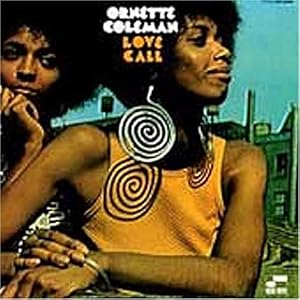 I believe the main lesson being taught by Ornette to the world has nothing to do with his "Harmolodic approach". The thing we learn from Coleman is to be ourselves. Here he uses Coltrane's rhythm section, but does not even remotely sound like anything but himself - starting a tune with a short riff, in unison with the tenor of Dewey Redman, then diving into an extended improvisation - playing with few limitations but with pefect control.
I believe the main lesson being taught by Ornette to the world has nothing to do with his "Harmolodic approach". The thing we learn from Coleman is to be ourselves. Here he uses Coltrane's rhythm section, but does not even remotely sound like anything but himself - starting a tune with a short riff, in unison with the tenor of Dewey Redman, then diving into an extended improvisation - playing with few limitations but with pefect control.The two versions of "Check out time" are an example to Coleman's truly free approach. The opening riff is basically identical, but where on the first version Coleman enters with bursting energy, on the second version the opening is followed by a Redman's long notes over a slowing rhythm. This gives the rest of the piece a whole different feel.
On the Love Call versions Ornette plays trumpet and violin. While I prefer his alto playing, it is good to hear him explore the different sounds and possibilities.
That's Ornette. His mind is always working, unbound by anything other than his own musical sensibilities. He knows his African American tradition - but is not limited by it or any other tradition. It is not easy for a musician to stray from a tradition - it is much easier to stay in the cozy confinements of an existing style/tradition. But the strong survive - as Coleman has. Amazon User
Download

No comments:
Post a Comment